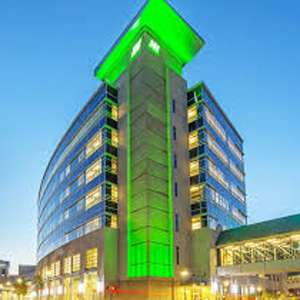By Hannah Denham
Job openings in Alabama are on the rise, especially for retail workers and supervisors, nurses, fast food workers, and truck drivers.
Nearly 80,000 job ads were active online across the state in May – up 1.3% from the previous month, according to new data from the Alabama Department of Labor. That’s nearly 16 job ads for every 1,000 residents in the state. More than half of the ads didn’t list experience as necessary.
Jonathan McNair, public relations officer for the Alabama Department of Labor, pointed out that healthcare and transportation are areas where there is often a need for more workers.
“Alabama being agricultural as a big part of what we do here, as well as we have large healthcare centers, that lends itself for us to have a high percentage of openings,” he said in an interview. “We slot in two of the biggest demand areas in the nation right now.”
Restaurants, and the hospitality industry more broadly, have had more postings in the last few months as employers prepare for the busy season amid summer tourism and a surge in high school and college students who re available for seasonal work, McNair added.The Birmingham metro area claimed the most job postings (26%) in May, according to the most recent data. That larger share is typical for the region, McNair said.“Three letters, UAB, is what factors in there, with the large medical center here, as well as the university,” McNair said. “I think they want to change their mascot from a dragon to acrane, just because they’re always building and doing more there.”Tatianna Turrentine-Long, market intelligence manager for the Birmingham Business Alliance, said that the most common openings in the region include healthcare diagnosing and treating practitioners, business operations specialists, computer workers, sales representatives and material moving workers.“For some of the jobs with a high demand, there is a high presence of workers within that occupation group that can meet the demand,” she said in an email. “The region also has a large skill gap between employers within industries that require computer occupation-related roland employees who workin these industries.”After Birmingham wasHuntsville, with nearly 19%of the state’s total postings. Both metros claimedan outsized share of the new job openings, witnearly half of the state’s total ads. When adjusting for population, the Birmingham metro had roughly 18ads per 1,000 residents the Huntsville metro had roughly 28 ads per 1,000residents.The open jobs for theHuntsville metro is drive by its fast-growing population, McNair said.“It’s just a huge technology center there, and the health center there has also been doing a lot of expanding just to accommodate that new population that’s moving there,”he said. “You’re seeing so much more energy out of the space sector in general, with that being one of the hubs that hold Huntsville together. They’re going to have, I think, an in months as employers pre- pare for the busy season amid summer tourism and a surge in high school and college students who are available for seasonal work, McNair added.
The Birmingham metro area claimed the most job postings (26%) in May, according to the most recent data. That larger share is typical for the region, McNair said.
“Three letters, UAB, is what factors in there, with the large medical center here, as well as the university,” McNair said. “I think they want to change their mascot from a dragon to a crane, just because they’re always building and doing more there.”
Tatianna Turrentine Long, market intelligence manager for the Birmingham Business Alliance, said that the most common openings in the region include healthcare diagnosing and treating practitioners, business operations specialists, computer workers, sales representatives and material moving workers.
“For some of the jobs with a high demand, there is a high presence of workers within that occupation group that can meet the demand,” she said in an email. “The region also has a large skill gap between employers within industries that require computer occupation-related roles and employees who work in these industries.”
After Birmingham was Huntsville, with nearly 19% of the state’s total postings. Both metros claimed an outsized share of the new job openings, with nearly half of the state’s total ads. When adjusting for population, the Birmingham metro had roughly 18 ads per 1,000 residents; the Huntsville metro had roughly 28 ads per 1,000 residents.
The open jobs for the Huntsville metro is driven by its fast-growing population, McNair said.
“It’s just a huge technology center there, and the health center there has also been doing a lot of expanding just to accommodate that new population that’s moving there,” he said. “You’re seeing so much more energy out of the space sector in general, with that being one of the hubs that hold Huntsville together. They’re going to have, I think, an increasing need for workers going forward.”
Both Montgomery and Mobile had about 9% of the job openings in the state. That’s about 19 ads in Montgomery per 1,000 residents, and 17 ads in the Mobile metro per 1,000 residents. Meanwhile, Baldwin County claimed about 5% of the openings, or about 17 ads per 1,000 residents.
All of those listed metros had more job ads than in the whole state combined, when factoring in population.
The state’s employers who posted the most ads in May include:
1. Walmart: 1,059 ads
2. Huntsville Hospital: 923 ads
3. UAB Medicine: 845 ads
4. The University of Alabama at Birmingham: 707 ads
5. Auburn University: 574 ads
6. Baptist Health: 511 ads
7. Taco Bell: 496 ads 8. USA Health: 432 ads
9. The University of Alabama:424 ads
10. Jack’s Family Restaurants: 416 ads
Walmart is already the largest employer in Alabama. The company employs about 42,000 people at 149 facilities across the state, including Supercenters, Neighborhood Markets, Sam’s Clubs and distribution centers, said Walmart spokesman Matt Joyner.
Almost 30,000 of those jobs were salaried: with 24% of them $70,000 and above; 17% of them between $50,000 and $69,000; about 27% of them ranging between $35,000 and $49,000; and 32% of job ads with salaries below $35,000, according to the labor department.
But who will fill all these openings? During May, the state had just 70,679 residents who were unemployed. That’s an unemployment rate of just 3% — and that’s down from March and April.
The state has 57 career centers that work directly with companies that are recruiting employees for open jobs scattered across the state. McNair emphasized the resource for people who are looking for jobs.
“There are more positions than we have workers,” he said. “There are a lot of advantages for someone who’s job seeking right now.”











